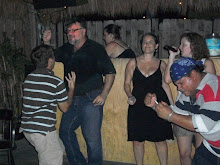Read 6:1-31.
1. What motivated the multitudes to follow Jesus (6:2,14-15,26-27)?
Note:
• Their physical needs (6:2)
• Politics (6.14-15)
• Material gain—free bread (6:26-27)
2. Do you think these same things motivate people to be religious today?
3- How did Jesus react to these people (6:26-29)?
4. What do you think it was that disqualified them from being real followers of Jesus?
Note: They refused to accept the significance of the signs. They were interested only in the utilitarian side, what Jesus could do for them.
5. What do you think Jesus was really trying to teach the crowd when He fed them (6:27)?
6. Jesus attached a second meaning to both that bread and the manna Moses gave the Israelites. How would you explain that second meaning? (See Isaiah 55:1-2.)
John 6:32-58.
7. What do you think Jesus was implying when He referred to Himself as "the bread of life" (John 6:35,51)?
Note:
• He is from above—the supernatural world (6:38,41,42).
• He gives life to the world (6:33).
• He satisfies our hunger and thirst (6:35).
• He is eternal (6:51,54).
8. How can a person get some of this "bread" (6:51-58)?
9. What do you think Jesus means by "eat my flesh and drink my blood"? Note: It is an individual act. A person must take Christ as the "staff of life." (See Galatians 2:20.) This chapter is not referring to Communion. With whom did Jesus break bread at the Lord's Supper? For what purpose? (See Luke 22:14-23.) The Lord's Supper was intended to provide a permanent remembrance of the hour of His death. Jesus told the multitude in John 6 that they had to eat and drink of Him for a very different reason. What was it?
10. Why is it impossible for Jesus to be merely a teacher or a philosopher and say what He says in 6:35-38?
Read 6:59-71
11. Why didn't Jesus try to smooth things over when He saw that His followers were offended by what He said (6:60-66)? (See also Matthew 15:8-9, Acts 28:26-27.)
Note: The people were only superficially accepting Jesus. He wanted all or nothing. He did those people a favor by sending them away. They had long been under the illusion that they were "followers of Christ." But Jesus' nonnegotiable terms are, "Give Me your whole self or forget it!"
If Christianity were something we were making up, of course we could make it easier. But it is not. We cannot compete, in simplicity, with people who are inventing religions. How could we? We are dealing with Fact. Of course anyone can be simple if he has no facts to bother about.> —C.S. Lewis
12. When Jesus asked His twelve disciples why they didn't leave along with everyone else. Peter summed up their position (John 6:68-69). What was his answer?
13- What do you think he meant by that?
14. Have you learned anything new about being a follower of Jesus Christ through this Gospel?
Monday, May 24, 2010
Monday, May 10, 2010
STUDY #6—JOHN 5
John 5
Read 5:1-18.
The most ancient known documents do not include verse 4. This suggests that it may have been interpolated later to explain the phenomenon of the pool.
1. Why do you think Jesus chose that particular lame man out of the multitude of diseased people (5:7)? (See also Luke 19:10.)
2. Did the lame man demonstrate any faith? Why might this be significant?
3. Why do you suppose Jesus asked, "Do you want to get well?" (John 5:6). Why wasn't that a stupid question?
4. Imagine being a paralyzed beggar waiting thirty-eight years for an improbable cure. Yet Jesus spoke of "something worse" (5:14). What could it be? (See Matthew 16:26.)
5. Is it possible to quit sinning? (See Romans 7:14-20.) Why didjesus tell him to stop? (See Romans 3:19-31,7:21-25.)
Note: Imagine how the man felt when he found himself sinning again after Jesus' warning. But he had to try to stop on his own to be convinced that he couldn't stop. It usually takes such a stubborn, independent attempt before we try God's way. The man had to realize that it was impossible for him not to sin unless he changed his very nature. He had to be born again (John 3:3).
6. Why didjesus deliberately violate the sacrificial laws (5:16-18)? (See also Matthew 12:1-14.)
Note: Centuries of tradition had obscured what the Old Testament actually taught regarding the Sabbath. Jesus was merely giving the Sabbath its proper interpretation. One of the characteristics of tradition is that it eventually becomes authoritative. (See Mark 7:6-9.)
7. What do you observe about Jesus from John 5:17-18?
Read 5:19-30.
8. What observations can you make about Jesus' relationship with His
Father (5:19-23)? (Compare 8:28,12:48-49,14:10.) In what sense was He dependent on His Father?
9. What do you see Jesus promising in 5:24? How does one receive these promises?
10. How would you reconcile 5:29 with the teaching that spiritual life comes through faith and not works? (See 6:28-29,15:5.)
Note: The life must come first, for it is the life that produces the works.
Read 5:31-47.
11. Jesus presented five witnesses who attested to His deity (5:31-39). Who or what were they?
Note:
• Jesus Himself
• His own works
• John the Baptist
• The Father
• The Scriptures
It is possible to isolate these witnesses, casting doubt on them individually. But when they are called to the stand together, although they do not prove the divinity of Christ with human proofs, they become irrefutable.
12. What obstacle to faith do you observe in 5:44? (See also 12:42-43.) How does this still hinder people?
Read 5:1-18.
The most ancient known documents do not include verse 4. This suggests that it may have been interpolated later to explain the phenomenon of the pool.
1. Why do you think Jesus chose that particular lame man out of the multitude of diseased people (5:7)? (See also Luke 19:10.)
2. Did the lame man demonstrate any faith? Why might this be significant?
3. Why do you suppose Jesus asked, "Do you want to get well?" (John 5:6). Why wasn't that a stupid question?
4. Imagine being a paralyzed beggar waiting thirty-eight years for an improbable cure. Yet Jesus spoke of "something worse" (5:14). What could it be? (See Matthew 16:26.)
5. Is it possible to quit sinning? (See Romans 7:14-20.) Why didjesus tell him to stop? (See Romans 3:19-31,7:21-25.)
Note: Imagine how the man felt when he found himself sinning again after Jesus' warning. But he had to try to stop on his own to be convinced that he couldn't stop. It usually takes such a stubborn, independent attempt before we try God's way. The man had to realize that it was impossible for him not to sin unless he changed his very nature. He had to be born again (John 3:3).
6. Why didjesus deliberately violate the sacrificial laws (5:16-18)? (See also Matthew 12:1-14.)
Note: Centuries of tradition had obscured what the Old Testament actually taught regarding the Sabbath. Jesus was merely giving the Sabbath its proper interpretation. One of the characteristics of tradition is that it eventually becomes authoritative. (See Mark 7:6-9.)
7. What do you observe about Jesus from John 5:17-18?
Read 5:19-30.
8. What observations can you make about Jesus' relationship with His
Father (5:19-23)? (Compare 8:28,12:48-49,14:10.) In what sense was He dependent on His Father?
9. What do you see Jesus promising in 5:24? How does one receive these promises?
10. How would you reconcile 5:29 with the teaching that spiritual life comes through faith and not works? (See 6:28-29,15:5.)
Note: The life must come first, for it is the life that produces the works.
Read 5:31-47.
11. Jesus presented five witnesses who attested to His deity (5:31-39). Who or what were they?
Note:
• Jesus Himself
• His own works
• John the Baptist
• The Father
• The Scriptures
It is possible to isolate these witnesses, casting doubt on them individually. But when they are called to the stand together, although they do not prove the divinity of Christ with human proofs, they become irrefutable.
12. What obstacle to faith do you observe in 5:44? (See also 12:42-43.) How does this still hinder people?
Tuesday, May 4, 2010
Speaking truthfully to one another
COL 3:9 Do not lie to one another, since you laid aside the old self with its evil practices,
EPH 4:25 Therefore, laying aside falsehood, speak truth, each one of you, with his neighbor, for we are members of one another.
ROM 15:14 And concerning you, my brethren, I myself also am convinced that you yourselves are full of goodness, filled with all knowledge, and able also to admonish one another.
COL 3:16 Let the word of Christ richly dwell within you, with all wisdom teaching and admonishing one another with psalms and hymns and spiritual songs, singing with thankfulness in your hearts to God.
EPH 4:25 Therefore, laying aside falsehood, speak truth, each one of you, with his neighbor, for we are members of one another.
ROM 15:14 And concerning you, my brethren, I myself also am convinced that you yourselves are full of goodness, filled with all knowledge, and able also to admonish one another.
COL 3:16 Let the word of Christ richly dwell within you, with all wisdom teaching and admonishing one another with psalms and hymns and spiritual songs, singing with thankfulness in your hearts to God.
Subscribe to:
Posts (Atom)






